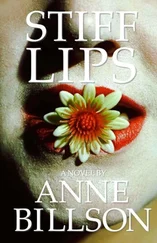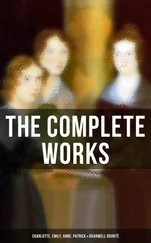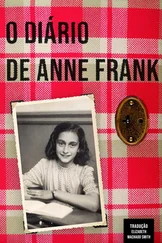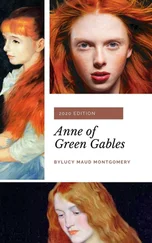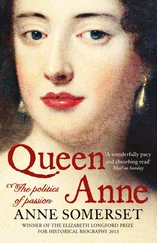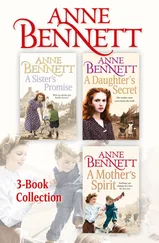It wasn’t murder, in my opinion. Some people might have had trouble understanding that. I might have had trouble myself if I hadn’t been there when it happened. Afterwards, Duncan sank into a depression and stayed depressed for the next five years. By the time he managed to snap out of it, he had almost succeeded in convincing himself the whole thing had been a dark trick of his imagination. Almost, but not quite. Each time he noticed my left hand, he couldn’t help remembering what had happened to the top joint of the little finger. I caught him looking sometimes, but we never talked about what he was thinking. We didn’t have to. I just knew.
After thirteen years we were different people, leading different lives. Duncan had turned into a non-smoking teetotal vegetarian. And he had gone right off horror movies; he would turn the television off as soon as it threatened to broadcast anything with old dark houses, or women in black, or ooh-whee-ooh music, and no-one though this odd, least of all Lulu. She was squeamish too, and naturally assumed he was switching off on her account.
But the main difference was that we were both making money now, and lots of it. Duncan made more than me, but then he worked harder than I did. I’d gone for the soft option, starting out as a Stylist, then altering my job description to Creative Consultant, which sounded more impressive and pretentious — more in tune with the times.
There was no shortage of work, because there was a flash new magazine title on the newsstands every couple of weeks — all style and no content, packed with features dealing with ‘image’ and ‘lifestyle’. It was down to people like me to keep publishers informed about their target market of upwardly mobile young adults with disposable incomes. I took the ‘Creative’ part of my job description literally. Most of the information I provided was completely fictitious.
Duncan and I weren’t the only ones on a roll. Pubs and clubs were jam-packed full of people with too much money to spend, all standing elbow to elbow and jogging each other’s drinks. You had to queue to get to the bar, and you had to queue to get to the Ladies Room as well. If you strained your ears to hear beyond the sound of flushing cisterns you could sometimes pick up the discreet chip-chop of credit cards against porcelain, followed by gentle snuffling as fine white lines were hoovered up into hovering nostrils.
These people took their pleasures seriously. In pubs, clubs, or restaurants, they talked about money and work, work and money, all the time. And they dressed like guests at a funeral. It made me uneasy sometimes, so it must have made Duncan uneasy too. Everywhere you looked, there would be women dressed in black — white faces, black hair, mouths painted scarlet. It was The Look. You saw it on the street. You saw it on the covers of magazines. You saw it presenting arts programmes on TV.
And some of us saw it in our nightmares. I made sure I didn’t look like that. It was thirteen years since I had gone out dressed in nothing but black. And I made sure there was more to my life than money and work, work and money. I had a wide range of interesting hobbies. Gardening, for instance. I didn’t do much digging — you could only dig so far on a balcony — but there was plenty of honeysuckle, most of it covered in aphids. Aphid-hunting was another of my hobbies. The black ones were easiest to spot, but the green ones were juicier, more fun to pop. At the end of a serious aphid-squishing session my fingers would be stained the colour of lime juice.
I collected plastic construction kits as well, though not the aeroplane ones. I had a pterodactyl with a battle-scarred wing, a life-size skull which glowed in the dark, and a Visible Woman with a detachable foetus. I watched videos, and I did crosswords, and sometimes, just to keep my hand in, I dressed up and went out and socialized, like everyone else.
But my favourite hobby was persecuting Patricia Rice. I knew her name because she had written it on a small piece of card and slid it into the little slot next to her doorbell. She had no idea who I was, of course, but I knew her. She lived in a ground-floor flat in a Victorian terrace just south of Waterloo Station. She was a lucky girl; she had gas-fired central heating, new wiring, and a freshly-injected damp-proof course. I knew all this because I had seen it for myself. The estate agents had shown me round. They had even given me a set of keys and later, when my offer had been accepted, I had gone back on my own to wander from room to room, deciding where to put the furniture. I had paid my surveyors. I had run up a tab with my lawyers. I was all set to exchange contracts when Patricia Rice came along out of nowhere and gazumped me.
It wasn’t as though I’d had trouble finding somewhere else. I took out a mortgage on a first-floor flat across town. The main drawback was the lack of soundproofing; it was a cowboy conversion, and the people upstairs drove me nuts with their noise. Besides, one of them was German. Up until then, I had properly encountered only one German in my life, but he had been more than enough to leave me with a distinct anti-German bias.
Even so, I liked my flat, because it was only a brisk ten-minute walk away from Duncan’s. So in a way, Patricia Rice had done me a favour. But that didn’t mean I was going to let her get away with it. For three years after the gazumping, I was too busy to care, but then I found myself with time on my hands. I thought about Patricia and how she had made a fool of me, and every so often I would nip down to SE1 to see how she was getting on. The lifts at Lambeth North tube station always seemed to be out of order, and it warmed my heart just to think of her toiling up and down that grimy staircase every day. I thought long and hard about how I could make things worse. As soon as the Channel Tunnel opened, I’d decided, I would send her address to a selection of Belgian youth groups, with the message Cheap rates, towels provided, backpacks welcome .
I also liked to dial her telephone number and, once she’d answered, leave my handset lying on the table; that way, her phone was all tied up so that no-one could call her, nor could she ring out until I hung up again. I couldn’t be bothered with any of that heavy breathing nonsense, though I would occasionally pipe Def Leppard down the line. I didn’t particularly care for Def Leppard; I’d bought the tape especially for Patricia.
But the most rewarding part of this particular hobby was the correspondence. It was one-way, but I didn’t mind. I had hours of fun cutting up magazines, and Cow-gumming letters on to blank sheets of Basildon Bond. Having to wear rubber gloves made it even more of a challenge. Once or twice, I got up early so I could loiter outside Patty’s flat and watch her mail being delivered bang on eight, just before she left for her boring job in an employment agency — I knew where she worked because I’d followed her there. Opposite her front door was a small construction site; the workmen never showed up before ten, and the cement mixers provided excellent cover. That way I could enjoy the spectacle as Patricia emerged, tense and nervous after opening the latest in the YOU ARE A SLUT AND YOU WILL DIE HORRIBLY series, or the slightly more colourful variations on BURN IN HELL YOU VILE NAZI BITCH.
The subject of Patricia Rice came up one afternoon while I was hanging around in Duncan and Lulu’s kitchen. Lulu had been making it obvious she didn’t want me there. She was fussing over her chickpeas, never passing up an opportunity to remind me that she and Duncan were expecting people for dinner, and that I wasn’t on the guest list. Everyone else I knew bought their hummus ready-made from the supermarket, but Lulu liked to make things difficult for herself.
Читать дальше

